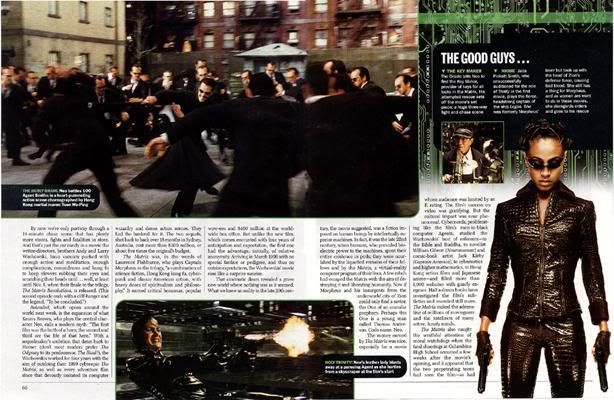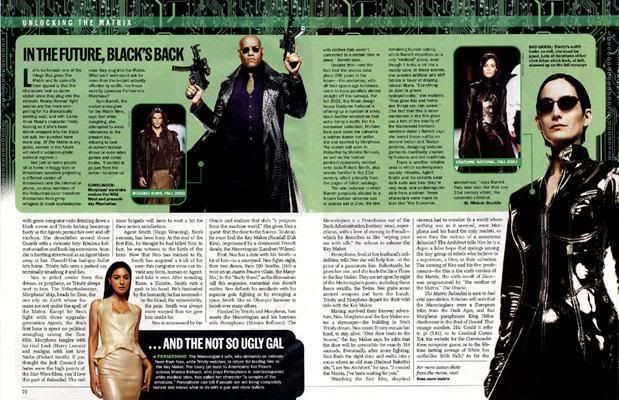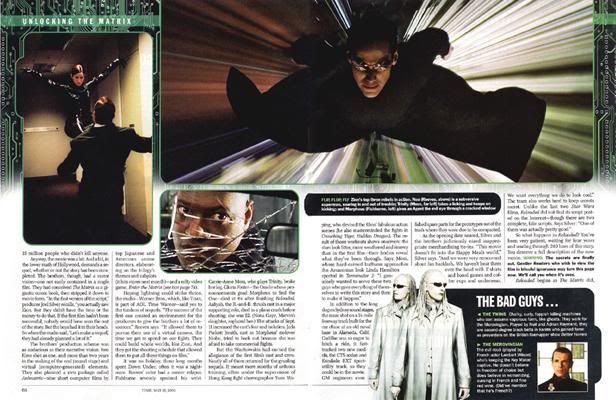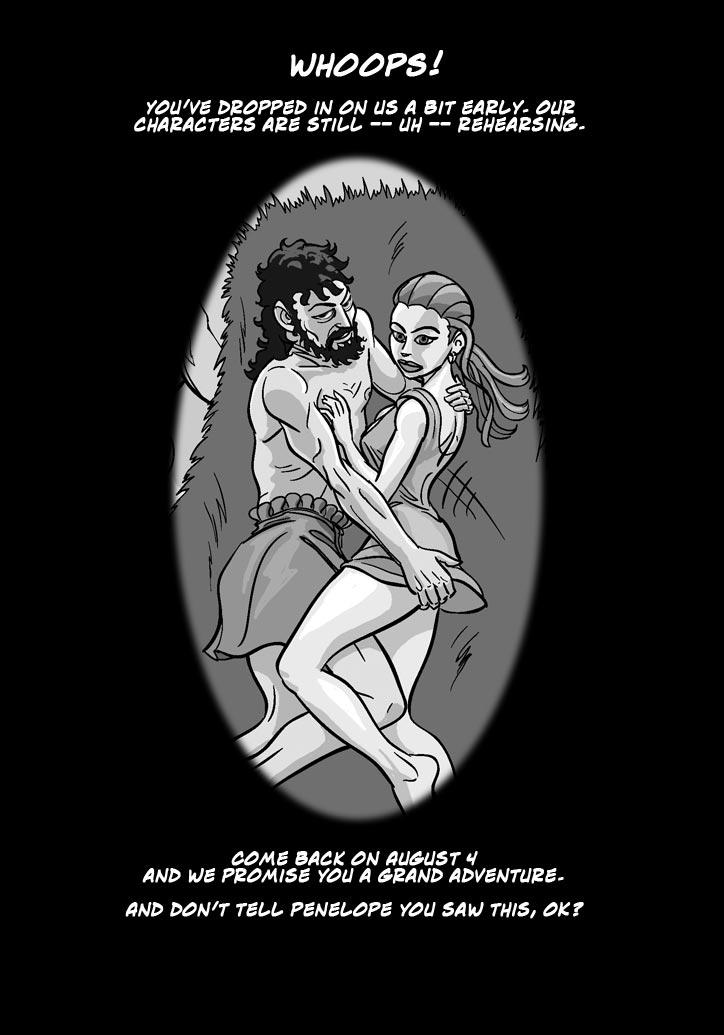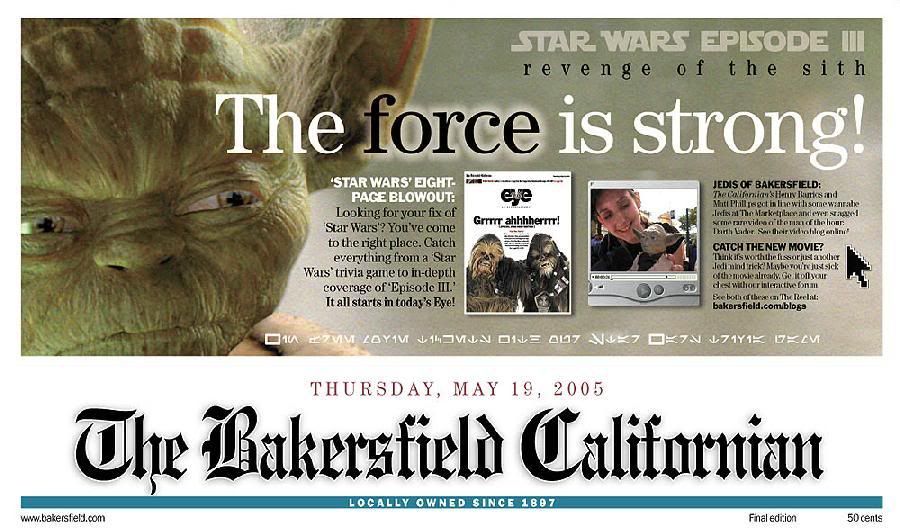So, I've got three nieces who have never been to a real concert.
And by "real" I mean any kind of musical performance outside of the school chorus or the occasional Ice Capades kind of thing. You know, a concert with actual showmanship on display?
So I was delighted when looking for something fun to do and came across these guys playing later in the year:
On closer inspection, though, I discovered the tour dates were for late 2009 and had already passed. It just so happens that another artist I love will be making a stop in Charlotte, N.C., next month:
Question: Is is appropriate to take a 13-year-old girl to see Danzig and Gorgeous Frankenstein? Because the only answers I can find in my notes are "Yes" and "Hell Yes." Besides, what's the point of being an uncle if you can't occasionally contribute to the delinquency of a minor?
Friday, May 21, 2010
But can he do the Carlton Dance?
Hunter Davis impersonates Ian McKellen ... reciting the lyrics to The Fresh Prince of Bel Air
A Distant Soil auction to pay for liver transplant costs
Artist Colleen Doran has contributed a page of original art from her comic series A Distant Soil to help pay for the cost of a liver transplant for a woman named Deb Mensinger.
to help pay for the cost of a liver transplant for a woman named Deb Mensinger.
From Doran 's Facebook page:
The page is pictured at left. The starting bid is $50 and the details of the auction can be found here.
From Doran 's Facebook page:
"Offered: A page of original comic art drawn by Colleen Doran. This is from from issue 2 page 5 of A Distant Soil; it's the first meeting of Rieken and Liana. It's an important page from the series, in excellent condition, circa 1986. Pen and ink with Japanese tone sheets. Very fine. Measures larger than standard comic art at nearly 16"x20" and has a retail value of $200."
The page is pictured at left. The starting bid is $50 and the details of the auction can be found here.
Melissa Auf Der Maur:
Out of Our Minds
Out of Our Minds is one of the most ambitious mainstream musical projects this side of The Flaming Lips . Not content to let the music stand alone, Melissa Auf Der Maur has apparently shot a film and created a comicbook to accompany the album. The details of the other two “inter disciplinary” projects are kind of sketchy — I don’t know what the comic is about, what the film depicts or how either relate to the album — but Auf Der Maur has had a grand time showing off her work to audiences at venues like the World Science Fiction Convention in Montreal.
is one of the most ambitious mainstream musical projects this side of The Flaming Lips . Not content to let the music stand alone, Melissa Auf Der Maur has apparently shot a film and created a comicbook to accompany the album. The details of the other two “inter disciplinary” projects are kind of sketchy — I don’t know what the comic is about, what the film depicts or how either relate to the album — but Auf Der Maur has had a grand time showing off her work to audiences at venues like the World Science Fiction Convention in Montreal.
I’m not convinced Out of Our Minds has a narrative concept, but it’s certainly veined by themes of life, love, death and how all three concepts are bound together. Its edge is also honed by romance, in the belief that there’s more to life than what we can feel and touch — but that sensual experiences are also our most direct connection to life.
There’s a primal feel to the album, but in many ways it’s a more restrained effort than her first solo effort. But it’s also a more accomplished album, one that doesn’t suffer from the shortcomings of her debut (which had lyrics that sometimes sounded like they were written by a high school drama club.)
The most notorious track on the album is, of course, her duet with Glenn Danzig, who has long vowed to never participate in anything even resembling a duet. Auf Der Maur convinced Danzig to participate by simply writing him a letter and asking him. With luck, this is a sign that Danzig is getting comfortable with the idea that people like his work.
to participate by simply writing him a letter and asking him. With luck, this is a sign that Danzig is getting comfortable with the idea that people like his work.
"My lucky sweatband that I wore throughout most of Hole was a Danzig patch sweatband, and I used to live in Los Angeles not too far from Danzig's home and drive by in my 1967 Cougar and would whisper, 'Please be my friend,'” she told Noisecreep. "I wanted so bad to have Danzig in my life."
Lucky for us, their collaboration — Father’s Grave — was worth the wait. Auf Der Maur and Danzig share writing credit on the song, but it’s clear that she had most of the tune in place before Danzig signed on. It harkens back (thought not too obviously) to Danzig’s Lucifuge days and is a terrific song.
days and is a terrific song.
Out of Our Minds is a diverse offering: Auf Der Maur flirts a little with ‘70s style psychedelia, quieter instrumentation that sometimes puts her voice further in the front than ever before and lurching rhythms that have been her songwriting signature since her days with Hole.
But there’s more to the album than a momentary detour to rock history. The album opens with an instrumental titled The Hunt which pulses with a quirky heartbeat and ambient vocals. The entire album builds steam as it progresses, with the harder, faster songs reserved for the final act. Father’s Grave gives way to The Key and The One, two songs about destiny and love that might sound sentimental coming from another musician. The album ends with the Nirvana-esque 1000 Years and techno-tribal styles of Whispers and Potions, which comes close to bringing the album full circle with its opening track.
Even though many of these themes would be perfectly at home on a Dio album, Melissa Auf Der Maur’s writing style is distinctively feminine. She’s also a good enough writer to find a way approach these subjects in ways that won’t frighten the straights. It’s a seductive approach to communication that is often missing from rock and roll.
NOTE: According to a recent Facebook post, Melissa Auf Der Maur and Jack Forbes, the artist on the Out of Our Minds comic, will be appearing Tuesday, May 25 at Forbidden Planet in NYC. If any of you are attending and want to share photos, please let me know.
I’m not convinced Out of Our Minds has a narrative concept, but it’s certainly veined by themes of life, love, death and how all three concepts are bound together. Its edge is also honed by romance, in the belief that there’s more to life than what we can feel and touch — but that sensual experiences are also our most direct connection to life.
There’s a primal feel to the album, but in many ways it’s a more restrained effort than her first solo effort. But it’s also a more accomplished album, one that doesn’t suffer from the shortcomings of her debut (which had lyrics that sometimes sounded like they were written by a high school drama club.)
The most notorious track on the album is, of course, her duet with Glenn Danzig, who has long vowed to never participate in anything even resembling a duet. Auf Der Maur convinced Danzig
Melissa Auf Der Maur and Karen Elson perform Danzig’s song, Devil's Plaything.
"My lucky sweatband that I wore throughout most of Hole was a Danzig patch sweatband, and I used to live in Los Angeles not too far from Danzig's home and drive by in my 1967 Cougar and would whisper, 'Please be my friend,'” she told Noisecreep. "I wanted so bad to have Danzig in my life."
Lucky for us, their collaboration — Father’s Grave — was worth the wait. Auf Der Maur and Danzig share writing credit on the song, but it’s clear that she had most of the tune in place before Danzig signed on. It harkens back (thought not too obviously) to Danzig’s Lucifuge
Out of Our Minds is a diverse offering: Auf Der Maur flirts a little with ‘70s style psychedelia, quieter instrumentation that sometimes puts her voice further in the front than ever before and lurching rhythms that have been her songwriting signature since her days with Hole.
But there’s more to the album than a momentary detour to rock history. The album opens with an instrumental titled The Hunt which pulses with a quirky heartbeat and ambient vocals. The entire album builds steam as it progresses, with the harder, faster songs reserved for the final act. Father’s Grave gives way to The Key and The One, two songs about destiny and love that might sound sentimental coming from another musician. The album ends with the Nirvana-esque 1000 Years and techno-tribal styles of Whispers and Potions, which comes close to bringing the album full circle with its opening track.
Even though many of these themes would be perfectly at home on a Dio album, Melissa Auf Der Maur’s writing style is distinctively feminine. She’s also a good enough writer to find a way approach these subjects in ways that won’t frighten the straights. It’s a seductive approach to communication that is often missing from rock and roll.
NOTE: According to a recent Facebook post, Melissa Auf Der Maur and Jack Forbes, the artist on the Out of Our Minds comic, will be appearing Tuesday, May 25 at Forbidden Planet in NYC. If any of you are attending and want to share photos, please let me know.
News Design: The Matrix (Part 2)
Wanna hear something strange? After spending too much time in the sun a few years ago I suffered some mild brain damage. The parts of my memory that stored The Matrix
Free Music Friday
Rue Morgue Radio Presents
Hymns From The House of Horror
In honor of Rue Morgue Magazine’s 100th issue, the company’s radio division has put together a free anthology of horror rock. Here’s what they say at the website:“We put our misshapen heads together and enticed a handful of the many artists we believe best encapsulate Rue Morgue into giving us exclusive mixes, previously unreleased tracks, obscure rarities and classic cuts for this morbid mixtape, hosted by Rue Morgue Radio's proprietor of perpetual darkness, Tomb Dragomir.”Appearing on this disc at Psycho Charger, Ghoultown, The Ghastly Ones, Balzac and the great Zombina and the Skeletones. The download file also comes with printable artwork! (Thanks to Phelpster at The Manchester Morgue for pointing this out.)
DOWNLOAD HERE
Mos Dub
Possibly my favorite freebie on this list is Mos Dub, a remix project by Max Tannone that features the lyrics from Mos Def and the music of classic dub and reggae. It works a lot better than you might think.DOWNLOAD HERE
Jane Siberry’s Entire Catalog
Jane Siberry — who I’m mostly familiar with because of her song on The Crow soundtrackDOWNLOAD HERE
Thursday, May 20, 2010
Devo announces results
of "song study"
Devo recently conducted an online "song study" to let fans choose which songs would appear on their first new album in 20 years. Tuesday night they held a press conference (lead by Devo, Inc's chief operating officer) to announce the findings. The video is above.
The new album is 88% focus-group approved!
Henry & Glenn Forever
You know ... I'm actually kind of speechless. But you know who won't be? Glenn Danzig. Dude has never met a lawsuit he didn't like. Here's how the comic is described by the creators, Igloo Tornado:
"Henry and Glenn Forever is the ridiculous idea born out of a night of too many beers shared by a group of artists who sometimes call themselves Igloo Tornado. On that night Gin Stevens said "There should be a Tom of Finland book, but with Henry and Glenn..." and Tom Neely and Scot Nobles replied: "Yes! And we're going to do it!" This bold idea (or is it a bad idea?) became a small zine that grew into a notorious legend that has now become a nice little book published by Cantankerous Titles!"
I stumbled over this at Time Out New York, which not only as a song from Danzig's new album Deth Red Sabaoth streaming for your pleasure, but linked to a separate LA Weekly story about Henry and Glenn Forever. This little nugget was buried in the story:
"Allegedly, when Henry Rollins was shown an earlier version of the minicomic, his reaction was to ask if Glenn had seen it yet. Rollins thought Danzig would have been less than amused."
Gee, do you think? James O'Barr once told me Danzig sued him because he thought he based the hero of The Crow on him.
Blackest Night: Excessive and Inconsequential
By the end, I’d learned to hate Blackest Night .
.
I went into this series with only the most fundamental of expectations. Even though I wasn’t doing backflips over the idea of reviving Hal Jordan, the new Green Lantern series has been a pretty good read (though it’s been prone to ponderous moments that ask for too much of its character.) All I really expected from it was something along the lines of Secret Invasion — a fun story that branched off from its parent title. It didn’t need to impact every title in the company’s publishing schedule or “change things forever.” Truth be told, I’d rather that not happen.
But Blackest Night has no “story,” even by the loosest definition of the word. Instead, Blackest Night is a hodgepodge of shocking moments, bullshit metaphysics and macho posturing. The violence in the series was excessive and ultimately inconsequential— which might be the best way to describe Blackest Night, as well.
By the time the series was over I had no idea what I’d read. Not only did it make no sense, it diluted the Green Lantern concept to the point of irrelevance. This is the reason Hal Jordan was revived? So he could join some rainbow coalition of peacemakers who are so one-dimensional that they’re all defined by a single emotion and color scheme? Somebody has grossly misinterpreted what it is people like about Green Lantern, and I’m pretty sure it’s not me.
This isn’t run-of-the-mill fanboy petulance (at least I hope it’s not.) I’m not all that fond of companywide crossovers because they usually spend a lot of time spinning their wheels but rarely ever go anywhere memorable. If you look back at the best books to spring out of these “event” stories, you’ll find only the thinnest relationship between them. Did Starman really need Zero Hour to justify its existence? Did JLI
really need Zero Hour to justify its existence? Did JLI need Legends? Do any of the new Brightest Day spinoffs really need Blackest Night?
need Legends? Do any of the new Brightest Day spinoffs really need Blackest Night?
While the primary reason for event books to exist is money, DC too often uses these stories to justify and "sell" their editorial decisions. It’s not enough for editors to decide that Batman needs to be less of a dick … they’ve got to find a multi-part storyline that justifies this change in character. It’s curious that these kinds of changes need never be justified when an A-list creator takes over a title. Where was the Great Event that explained the breach in style between William Messner-Loebs and John Byrne’s takes on Wonder Woman, which changed radically between issues without so much as a wink to readers?
Blackest Night appeared to be a mea culpa, of sorts. It was an acknowledgement that superhero comics had become kill crazy, and that it was time to stop trotting out murder as the driving factor in every story. Not only was it old hat, but these “deaths” never seemed to be permanent, anyway. It was the dramatic equivalent of watching a tightrope walker lower his platform to about 6 feet off the ground, but still demand a safety net. No matter how bad things got you knew they’d never get too bad.
DC’s solution to the “Death Problem?” Revive all the dead DC folks as zombies and have them kill most of the surviving characters in the company catalog. There seems to be a very clear statement about comicbook editorial policy, death and event titles buried somewhere in Blackest Night, but I’ll be damned if I can figure out what it is.
It didn’t help that Geoff Johns telegraphed the ending to the book in the first few issues. So many people died in the opening chapters that it seemed impossible that a deus ex machina ending was anything less than inevitable. Something was bound to happen that returned some kind of status quo to DC and revive most — if not all — of these dead characters.
Which is exactly what happened ... and in the most confusing way possible. I expect I’ll return to Blackest Night a few times in coming years to see if my feelings on the book will change, because I really don’t want to hate it (I still own a full-run of Millennium, after all.) But I think I might be done with superhero event stories in the future.
I went into this series with only the most fundamental of expectations. Even though I wasn’t doing backflips over the idea of reviving Hal Jordan, the new Green Lantern series has been a pretty good read (though it’s been prone to ponderous moments that ask for too much of its character.) All I really expected from it was something along the lines of Secret Invasion — a fun story that branched off from its parent title. It didn’t need to impact every title in the company’s publishing schedule or “change things forever.” Truth be told, I’d rather that not happen.
But Blackest Night has no “story,” even by the loosest definition of the word. Instead, Blackest Night is a hodgepodge of shocking moments, bullshit metaphysics and macho posturing. The violence in the series was excessive and ultimately inconsequential— which might be the best way to describe Blackest Night, as well.
By the time the series was over I had no idea what I’d read. Not only did it make no sense, it diluted the Green Lantern concept to the point of irrelevance. This is the reason Hal Jordan was revived? So he could join some rainbow coalition of peacemakers who are so one-dimensional that they’re all defined by a single emotion and color scheme? Somebody has grossly misinterpreted what it is people like about Green Lantern, and I’m pretty sure it’s not me.
This isn’t run-of-the-mill fanboy petulance (at least I hope it’s not.) I’m not all that fond of companywide crossovers because they usually spend a lot of time spinning their wheels but rarely ever go anywhere memorable. If you look back at the best books to spring out of these “event” stories, you’ll find only the thinnest relationship between them. Did Starman
While the primary reason for event books to exist is money, DC too often uses these stories to justify and "sell" their editorial decisions. It’s not enough for editors to decide that Batman needs to be less of a dick … they’ve got to find a multi-part storyline that justifies this change in character. It’s curious that these kinds of changes need never be justified when an A-list creator takes over a title. Where was the Great Event that explained the breach in style between William Messner-Loebs and John Byrne’s takes on Wonder Woman, which changed radically between issues without so much as a wink to readers?
Blackest Night appeared to be a mea culpa, of sorts. It was an acknowledgement that superhero comics had become kill crazy, and that it was time to stop trotting out murder as the driving factor in every story. Not only was it old hat, but these “deaths” never seemed to be permanent, anyway. It was the dramatic equivalent of watching a tightrope walker lower his platform to about 6 feet off the ground, but still demand a safety net. No matter how bad things got you knew they’d never get too bad.
DC’s solution to the “Death Problem?” Revive all the dead DC folks as zombies and have them kill most of the surviving characters in the company catalog. There seems to be a very clear statement about comicbook editorial policy, death and event titles buried somewhere in Blackest Night, but I’ll be damned if I can figure out what it is.
It didn’t help that Geoff Johns telegraphed the ending to the book in the first few issues. So many people died in the opening chapters that it seemed impossible that a deus ex machina ending was anything less than inevitable. Something was bound to happen that returned some kind of status quo to DC and revive most — if not all — of these dead characters.
Which is exactly what happened ... and in the most confusing way possible. I expect I’ll return to Blackest Night a few times in coming years to see if my feelings on the book will change, because I really don’t want to hate it (I still own a full-run of Millennium, after all.) But I think I might be done with superhero event stories in the future.
News Design: The Matrix
Remember when people could still talk about The Matrix without throwing up a little in their mouths? Good times. I'm one of those rare animals that would rather watch The Matrix: Reloaded
without throwing up a little in their mouths? Good times. I'm one of those rare animals that would rather watch The Matrix: Reloaded than the original film, though. So maybe I'm not the best person to be commenting on The Matrix series.
than the original film, though. So maybe I'm not the best person to be commenting on The Matrix series.
Wednesday, May 19, 2010
Odysseus the Rebel
Odysseus: Then I’ll die. But I go where I want and ask no leave of god or man. So piss off.
Odysseus the Rebel has some sparkling goddamn dialogue.
has some sparkling goddamn dialogue.
It’s rare to find a Greek epic that isn't inflicted by a PBS sense of aesthetics. From those hoary old Steve Reeves movies to I, Claudius, most sword-and-sandal stories suffer from bad costumes, stilted drama and a sense of reality that owes more to high school text books than to genuine human emotion.
So it was a pleasant surprise when I opened the graphic novel Odysseus the Rebel and found colloquial dialogue that had more in common with Mickey Spillane than William Shakespeare. Odysseus might have had a rebellious spirit in Homer’s original epic, but in writer Steven Grant’s world he literally tells Poseidon to fuck off.
and found colloquial dialogue that had more in common with Mickey Spillane than William Shakespeare. Odysseus might have had a rebellious spirit in Homer’s original epic, but in writer Steven Grant’s world he literally tells Poseidon to fuck off.
Grant re-works The Iliad into a story of modern heroism and paints Odysseus as a badass who’s fully aware of the power of his own myth. Odysseus is also a key participant in an arms race between humanity and the gods. The weapon in contention? Myth.
Rather than simply kill him, the gods – well, mostly just Poseidon – try to break his spirit and crush his myth at its apex. But Odysseus’ spirit is amazingly resilient, not to mention a little obnoxious. It's surprising how likable this character is given his unrepentant arrogance.
Grant sees The Iliad as a battle of wills between the old world and the new, which is the crux of almost every conversation in Odysseus the Rebel. Whether it’s Achilles’ wounded ego after posthumously learning that his myth might have spindly legs, to how Odysseus talks his way out of certain death from mutinous sailors, Grant’s dialogue rivals David Mamet’s in its meticulous subtext. Almost every word balloon in Odysseus the Rebel concerns the struggle between superstition and reason and Grant manages to keep the story on point regardless of where it flows.
If Odysseus the Rebel has a flaw, it’s in the packaging. While comics are probably the best medium for myth (it’s a visual format that puts the realistic and fantastic on equal footing in the audience’s imagination) the art by Scott Bieser is faintly amateurish. While he does an admirable job of capturing the feel of ancient Greek art, the layouts and line work are often simplistic. But it works well enough, even if it fails to impress. The cover design does the book no justice, either, and looks like the kind of thing usually seen in vanity press publications.
The structure of Grant’s story also begins a little awkwardly: the opening scene is a vision, which leads into a flashback before taking the audience into the “now” of the story. It’s a little disconcerting at first, but the story soon finds its rhythm and manages to balance its past with its present (which is no easy task, given the dearth of material that has to be presented here.)
I was actually a little disappointed when the story ended, though the ending was entirely satisfying. It was a wild ride that — despite the age of the material — still managed to surprise. And how often do you see that in comics these days?
I was actually a little disappointed when the story ended, though the ending was entirely satisfying. It was a wild ride that — despite the age of the material — still managed to surprise. And how often do you see that in comics these days?
News Design: Jedi Edition
Ah, Yoda ... is there anything you can't make better?
(Bonus points awarded for including wookies in the design!)
Tuesday, May 18, 2010
Ugh ... criticism
The older I get, the fewer comic books I read.
I probably read more today than ever before, but I find myself buying fewer and fewer of the traditional "pamphlet" magazines. On the best day they're expensive and uneven, with most story arcs stretching between four and six months. That's a long time to wait to read a complete story, especially considering how quickly you can read a comic.
Consequently, I buy a lot of trades and give a lot of monthly titles a miss. And if for some reason I don't buy the TPB, then I guess I didn't really want it that badly to begin with.
This week I made the decision to deliberately skip monthly books that are sure to get s TPB release, with a few exceptions. I've been reading Daredevil on a monthly basis for so long that I'm a little hesitant — even superstitious – about breaking that streak. The same goes for Batman, Detective Comics and New Avengers.
As for the rest ... well, there are no certainties in life when you're name is Aquaman or Green Arrow. It's just common sense not to expect their stories to be collected in TPB (but Green Arrow's popularity on the secondary market has been a pleasant surprise.) And look how long it's taken DC to collect Sandman Mystery Theater ... I never thought that would happen.
... I never thought that would happen.
Which leaves me with a lot of graphic novels to read; collected, complete and finite tales that live outside the endless boundaries of the monthly format. I've been getting caught up on some books — some old, others not — and thought I'd write about them here. I've already mentioned Johnny Cash: I See a Darkness (which you can read here) and plan to review Odysseus the Rebel
(which you can read here) and plan to review Odysseus the Rebel , Godland Vol. 1
, Godland Vol. 1 and Grendel: Devil by the Deed
and Grendel: Devil by the Deed during the next week or so. I also want to say a little about Melissa Auf Der Maur's Out of Our Minds
during the next week or so. I also want to say a little about Melissa Auf Der Maur's Out of Our Minds album, too.
album, too.
So, expect a fair amount of criticism at this site in the near future. And try not to hold it against me ... because I'm always right, even when I'm wrong.
I probably read more today than ever before, but I find myself buying fewer and fewer of the traditional "pamphlet" magazines. On the best day they're expensive and uneven, with most story arcs stretching between four and six months. That's a long time to wait to read a complete story, especially considering how quickly you can read a comic.
Consequently, I buy a lot of trades and give a lot of monthly titles a miss. And if for some reason I don't buy the TPB, then I guess I didn't really want it that badly to begin with.
This week I made the decision to deliberately skip monthly books that are sure to get s TPB release, with a few exceptions. I've been reading Daredevil on a monthly basis for so long that I'm a little hesitant — even superstitious – about breaking that streak. The same goes for Batman, Detective Comics and New Avengers.
As for the rest ... well, there are no certainties in life when you're name is Aquaman or Green Arrow. It's just common sense not to expect their stories to be collected in TPB (but Green Arrow's popularity on the secondary market has been a pleasant surprise.) And look how long it's taken DC to collect Sandman Mystery Theater
Which leaves me with a lot of graphic novels to read; collected, complete and finite tales that live outside the endless boundaries of the monthly format. I've been getting caught up on some books — some old, others not — and thought I'd write about them here. I've already mentioned Johnny Cash: I See a Darkness
So, expect a fair amount of criticism at this site in the near future. And try not to hold it against me ... because I'm always right, even when I'm wrong.
Subscribe to:
Posts (Atom)









